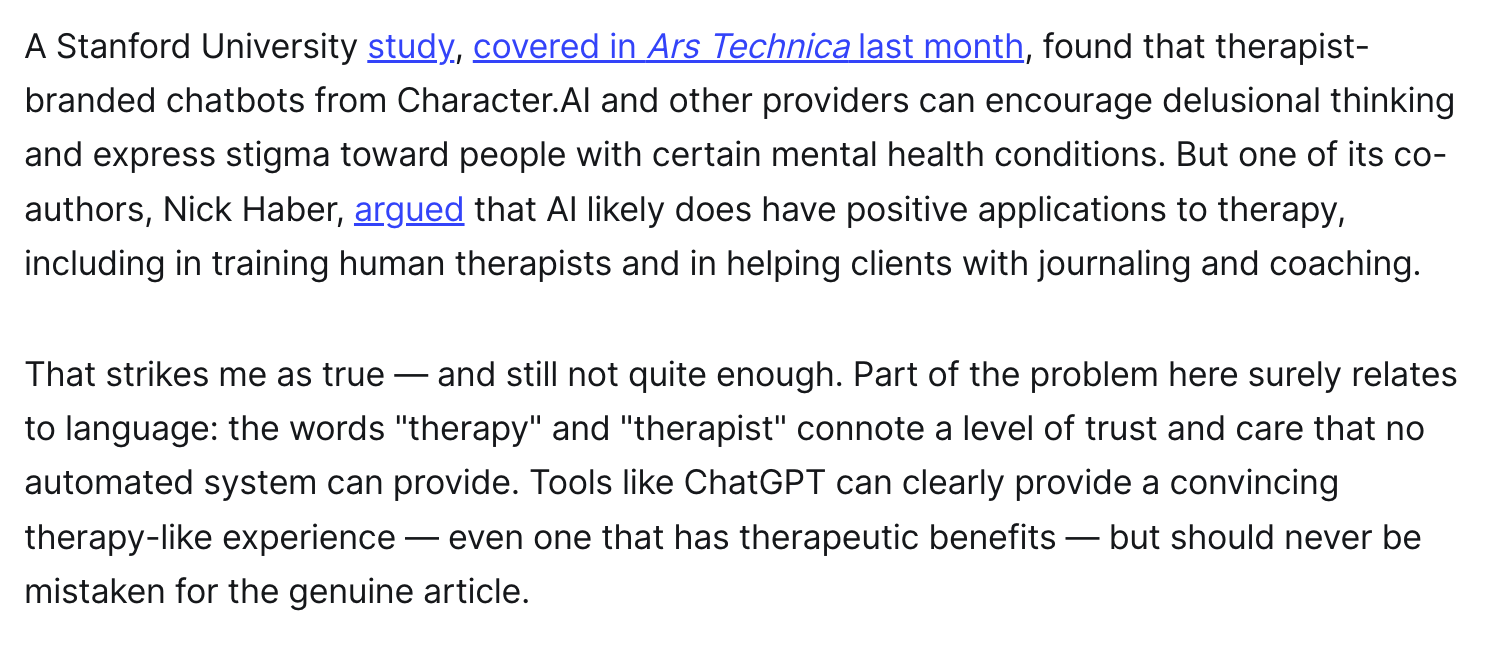Chatbots can provide something like therapy, but it's not the genuine article — so I think it's good more states are cracking down on how companies present them https://www.platformer.news/ai-therapy-paxton-meta-character/
Discussion
Loading...
Discussion
@caseynewton
"Hi, I am your gentle therapist. Please talk to 1,000's of corporations who want your data. Now tell me all your intimacies." 😍
bonfire.cafe
A space for Bonfire maintainers and contributors to communicate
Automatic federation enabled
